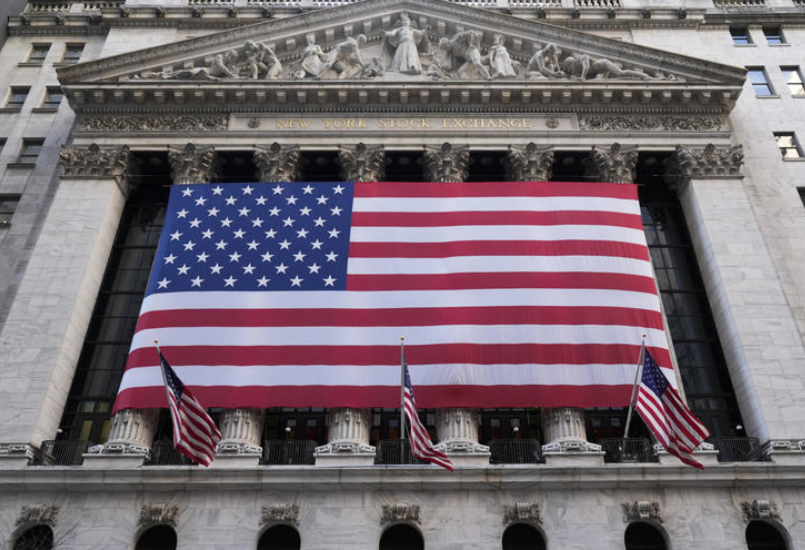Wall Street Tumbles Amid Tariff Volatility and Declining AI Stocks
- quinnvaras
- Mar 6
- 4 min read

Market Sell-Off Resumes Amid Economic Uncertainty Wall Street experienced another sharp downturn on Thursday, with the S&P 500 tumbling 1.8% as market volatility returned following a brief recovery. The Dow Jones Industrial Average dropped 427 points (-1%), while the tech-heavy Nasdaq Composite plunged 2.6%, officially entering correction territory, more than 10% below its December record.
Tariff Uncertainty Weighs on Investor Sentiment Despite President Donald Trump’s last-minute decision to grant a one-month reprieve from 25% tariffs on select imports from Mexico and Canada, investor confidence remained shaky. Unlike the previous day’s stock market rebound, which followed exemptions for automakers, Thursday’s market reaction suggested persistent concerns over trade policy volatility.
Trump’s unpredictable stance on tariffs has amplified uncertainty, with further levies still set to take effect on April 2. His administration’s inconsistent messaging—initially stating that negotiations were off the table before offering exemptions—has left businesses cautious about the broader economic implications.
“These exemptions don’t do much to resolve the general air of uncertainty,” said Yung-Yu Ma, chief investment officer at BMO Wealth Management. “Businesses will still be cautious in the current environment until a lot more of the tariff picture is clear.”
Analysts at BNP Paribas echoed this sentiment, warning that even if tariffs are ultimately removed, they could inflict long-term damage on global economic activity. U.S. households, already bracing for inflationary pressures, have also seen a decline in consumer confidence due to trade-related instability.
AI Stocks Lead Market Declines Adding to Wall Street’s woes, AI-driven stocks suffered significant losses as investors reassessed their valuations. Semiconductor companies, which had previously soared on AI-driven optimism, led the sell-off.
Marvell Technology plummeted 19.8%, despite reporting earnings that slightly exceeded expectations and projecting over 60% year-over-year revenue growth.
Nvidia, widely regarded as the leader of the AI boom, slid 5.7% as investors questioned the sustainability of its meteoric rise.
Broadcom lost 6.3% ahead of its earnings report, reflecting broader caution in the semiconductor sector.
While AI stocks had powered the Nasdaq to record highs, recent developments—such as increased competition from Chinese firms like DeepSeek, which claims to operate without expensive U.S.-made AI chips—have introduced new risks. Nvidia, for instance, surged nearly 820% from 2023 into 2024, raising concerns that valuations had become overly inflated.
Retail Earnings Signal Consumer Spending Slowdown Several major retailers also contributed to Thursday’s declines, issuing weaker-than-expected forecasts for 2025:
Macy’s reported slightly lower revenue than analysts had projected for the final quarter of 2024, though its profits exceeded expectations. However, its 2025 profit outlook disappointed investors, sending shares down 0.7%.
Victoria’s Secret saw its stock plunge 8.2% after delivering a softer-than-expected revenue forecast for the year ahead.
These reports signal that U.S. consumer spending—previously a key driver of economic resilience—may be weakening. The upcoming U.S. Labor Department jobs report, scheduled for Friday, is expected to provide further insights into economic stability. Analysts anticipate an acceleration in hiring for February, with an estimated 159,000 jobs added compared to January’s 143,000. The unemployment rate is expected to hold steady at 4%.
International Markets React to Economic Shifts Global stock markets showed mixed responses to economic developments:
Europe: German stocks rallied 1.5% following an agreement to ease constitutional borrowing limits, signaling increased government spending over the next decade. The European Central Bank’s decision to cut interest rates also contributed to market optimism.
Asia: Hong Kong’s Hang Seng Index surged 3.3%, while Shanghai’s Composite Index gained 1.2%, despite ongoing trade tensions. China’s commerce minister asserted that the country could withstand U.S. tariffs, though he acknowledged that “there are no winners in a trade war.”
Meanwhile, in the bond market, the yield on the 10-year Treasury note edged up to 4.29% from 4.28%, reflecting investor recalibration in response to evolving economic conditions.
Government Layoffs Surge Amid Federal Workforce Cuts In addition to market turbulence, the U.S. job market faced a significant challenge in February, as layoffs surged to their highest levels since July 2020. A total of 172,017 jobs were cut, marking a staggering 245% increase from January, according to Challenger, Gray & Christmas.
The spike in layoffs was primarily driven by widespread job cuts in the federal government, spearheaded by the Department of Government Efficiency (DOGE). Led by Elon Musk, DOGE has aggressively targeted perceived waste and redundancy, disproportionately impacting newly hired workers.
Federal job cuts totaled 62,242 in February, up an unprecedented 41,311% from the previous year.
Retail sector layoffs reached nearly 39,000, reflecting economic uncertainty and shifting consumer spending patterns.
Technology firms announced 14,554 job cuts, as businesses adjusted to post-pandemic economic conditions.
Despite these layoffs, official government data has yet to reflect the full impact. The Labor Department reported a drop in weekly jobless claims, with 221,000 Americans filing for unemployment benefits for the week ending March 1. Analysts expect DOGE-related layoffs to materialize in employment reports in the coming weeks or months.
Additionally, the private nonprofit sector has begun to feel the downstream effects of federal budget cuts, shedding roughly 900 jobs due to decreased funding.
Conclusion Thursday’s sell-off underscored the mounting uncertainty in financial markets, driven by fluctuating trade policies, weakening consumer sentiment, and a reassessment of AI sector valuations. While economic indicators such as job growth remain resilient for now, the impact of widespread federal layoffs and slowing retail sales could introduce new risks. Investors will be closely watching upcoming economic data and corporate earnings to gauge whether this market correction deepens further.







Comentarios